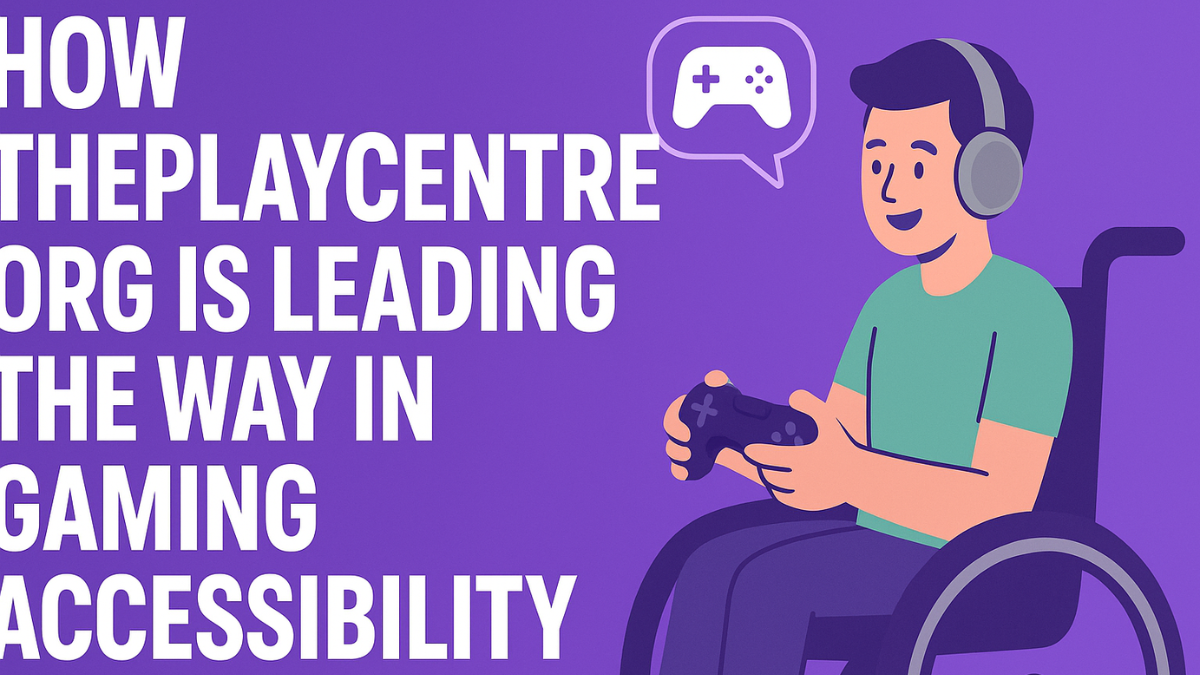The Benefits of Soft Play for Children – Insights from theplaycentreorg.com
Discover the top benefits of soft play for children, including physical, social, and emotional growth. Learn expert insights from theplaycentreorg.com to see why soft play is essential for kids.
also read: https://theplaycentreorg.com/top-5-educational-play-programs-available-on-theplaycentreorg-com/
Introduction
Children thrive in environments where learning and play go hand in hand. Soft play areas, with their colorful, cushioned, and safe setups, have become increasingly popular among parents who want their kids to explore, develop, and socialize in a secure environment. According to theplaycentreorg.com, soft play is not just about fun—it offers a wide range of developmental benefits that shape a child’s early growth.
In this article, we’ll explore the many benefits of soft play for children, how it enhances their physical, social, and emotional well-being, and why theplaycentreorg.com is a trusted platform for families seeking high-quality play experiences.
What is Soft Play?
Soft play is an indoor or outdoor play area filled with cushioned mats, padded climbing frames, tunnels, slides, and ball pits. Unlike traditional playgrounds with hard surfaces, soft play centers are designed to minimize injury risks and encourage free exploration.
On theplaycentreorg.com, soft play activities are carefully structured to balance entertainment and developmental learning. The environment is both safe and stimulating, allowing children to engage in active play without the fear of accidents.
Physical Benefits of Soft Play for Children
1. Improves Motor Skills
Soft play challenges children to crawl, climb, jump, and slide, improving their gross motor skills. Fine motor activities like grabbing soft blocks or maneuvering through tunnels also strengthen hand-eye coordination.
2. Boosts Strength and Balance
Soft play encourages muscle development as kids pull themselves up climbing frames or balance on padded beams. Over time, these activities improve body strength, agility, and posture.
3. Encourages Active Lifestyle
In an age where digital screens dominate children’s attention, theplaycentreorg.com highlights how soft play provides an exciting alternative to sedentary habits. Active play fights childhood obesity and builds stamina.
Social Benefits of Soft Play
1. Promotes Teamwork and Sharing
Soft play centers encourage group activities, where children learn to share toys, take turns on slides, and cooperate in games. This nurtures team spirit and empathy.
2. Builds Communication Skills
Interacting with peers helps children develop language and communication skills. Whether asking for a toy or joining a playgroup, kids naturally practice speech in a social setting.
3. Reduces Shyness and Builds Confidence
For shy or introverted children, soft play offers a non-intimidating space to interact. Theplaycentreorg.com notes that many children become more confident after repeated visits to play centers.
Emotional and Cognitive Benefits
1. Enhances Creativity and Imagination
The colorful, dynamic environment sparks creativity. Kids often pretend tunnels are caves or ball pits are oceans, developing imaginative thinking.
2. Reduces Stress and Anxiety
Active play releases endorphins, also called “happy hormones.” This improves children’s moods and reduces stress, especially in kids who may feel overwhelmed at home or school.
3. Teaches Problem-Solving
Soft play challenges—like climbing structures or finding the way through mazes—help children develop problem-solving and decision-making skills at an early age.
Why Choose theplaycentreorg.com for Soft Play?
Many parents wonder what makes theplaycentreorg.com stand out from other play centers. Here are a few insights:
| Feature | theplaycentreorg.com Advantage |
|---|---|
| Safety Standards | Soft, cushioned equipment that meets international child-safety standards. |
| Variety of Play Areas | Zones for toddlers, preschoolers, and older children. |
| Educational Value | Structured play that combines fun with learning activities. |
| Community & Events | Seasonal events, parties, and workshops for families. |
| Parent-Friendly Facilities | Comfortable seating, cafes, and Wi-Fi for parents. |
Parents trust theplaycentreorg.com not only for entertainment but also for providing a holistic environment where children can learn, grow, and play safely.
Long-Term Developmental Impact of Soft Play
Research suggests that children who engage in regular active play develop healthier routines, stronger immune systems, and better academic performance. Soft play creates a foundation for lifelong skills, including resilience, problem-solving, and adaptability.
According to experts at theplaycentreorg.com, soft play contributes to a child’s emotional intelligence by teaching them how to handle both winning and losing, negotiate during games, and resolve small conflicts peacefully.
Tips for Parents to Maximize Soft Play Benefits
While soft play offers immense benefits, parents can enhance the experience by:
- Encouraging group play to improve socialization.
- Limiting screen time so kids look forward to physical activities.
- Observing children’s play to identify strengths and weaknesses.
- Scheduling regular visits through theplaycentreorg.com for consistency.
- Joining in play occasionally to strengthen parent-child bonding.
FAQs – The Benefits of Soft Play for Children
Q1: At what age can children start enjoying soft play?
Most soft play centers welcome toddlers as young as 6 months, with dedicated baby areas.
Q2: Is soft play safe for children with special needs?
Yes, many centers, including those on theplaycentreorg.com, offer inclusive spaces designed for children with additional needs.
Q3: How often should kids engage in soft play?
Experts recommend at least 2–3 sessions per week for maximum developmental benefits.
Q4: Can soft play help improve sleep in children?
Yes, physical activity during play helps release energy, leading to better sleep routines.
Q5: What should children wear for soft play?
Comfortable, flexible clothing with non-slip socks is ideal for safety and ease of movement.
Q6: Is soft play suitable for children with anxiety?
Yes, soft play provides a relaxed, fun environment that helps reduce anxiety and build confidence.
Q7: Can parents participate in soft play activities?
Many centers encourage parent involvement, especially for younger children, to promote bonding.
Q8: Are there hygiene concerns with soft play areas?
Reputable centers like those listed on theplaycentreorg.com follow strict cleaning and sanitization procedures.
Q9: Does soft play help with academic skills?
Indirectly, yes. Play-based learning improves focus, memory, and problem-solving, which enhance academic performance.
Q10: What is the difference between indoor playgrounds and soft play?
Indoor playgrounds may have harder equipment, while soft play uses cushioned, padded structures for maximum safety.
Conclusion
Soft play is more than just entertainment—it’s a powerful tool for child development. From improving motor skills and boosting confidence to enhancing creativity and reducing stress, the benefits are immense.
Theplaycentreorg.com continues to be a trusted platform for parents seeking safe, engaging, and educational play environments. By choosing soft play, families invest not only in their children’s happiness but also in their long-term growth and well-being.
also read: https://theplaycentreorg.com/how-theplaycentreorg-com-is-redefining-family-entertainment/
also read: https://theplaycentreorg.com/why-parents-love-theplaycentreorg-com-for-safe-creative-play-spaces/
also read: https://theplaycentreorg.com/10-fun-birthday-party-ideas-you-can-book-via-theplaycentreorg-com/
also read: https://theplaycentreorg.com/the-ultimate-guide-to-kids-indoor-activities-on-theplaycentreorg-com/
also read: The Ultimate Guide to Kids’ Indoor Activities on theplaycentreorg.com
news via inbox
Mail us for latest news and updates







